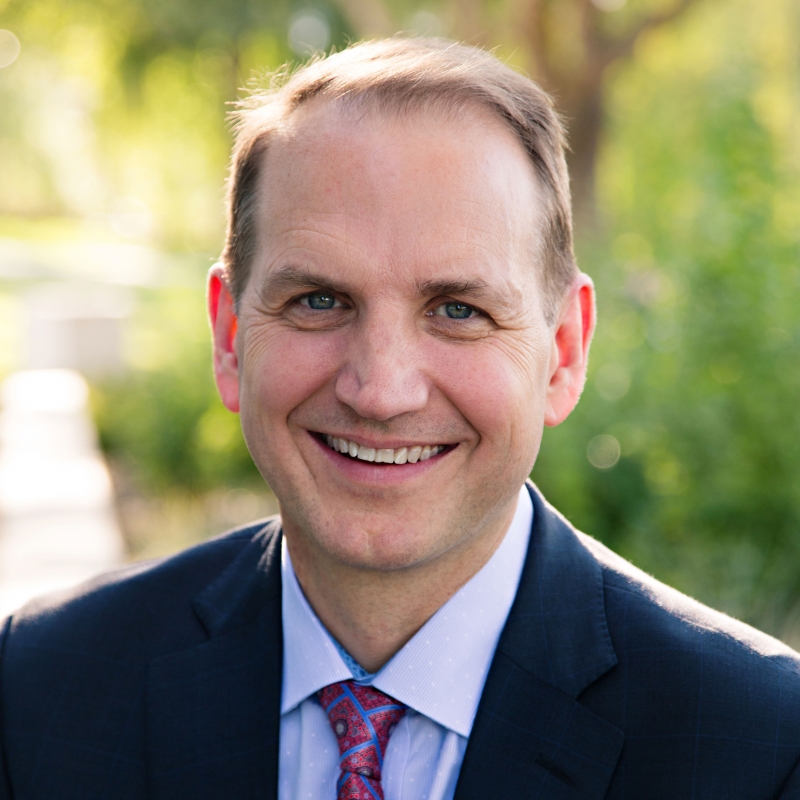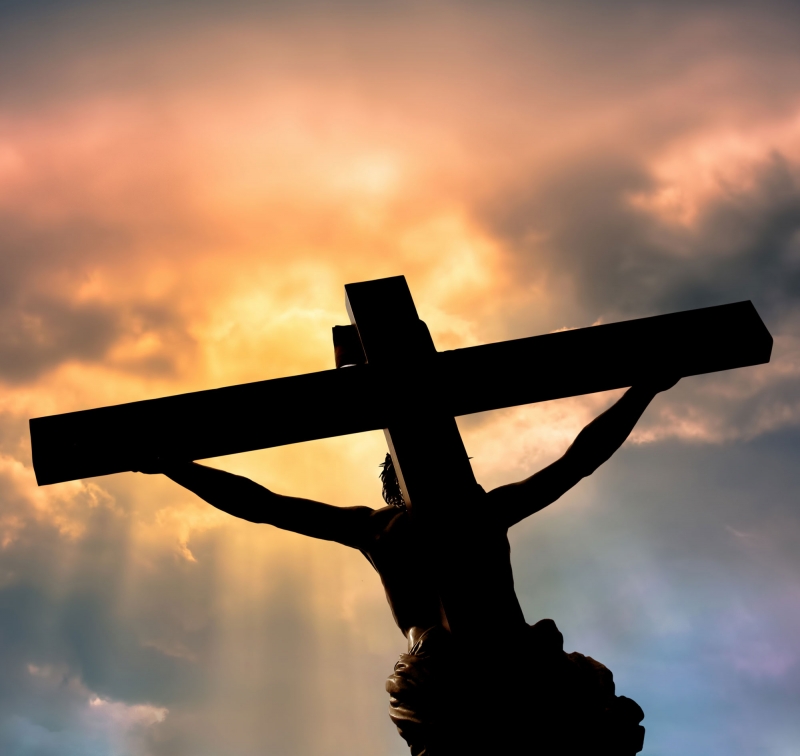
Brian Schwartz, MD
A Sanctuary in Time
And on the seventh day God ended His work which He had done, and He rested on the seventh day from all His work which He had done. Then God blessed the seventh day and sanctified it, because in it He rested from all His work which God had created and made.”
– Genesis 2:2-3
The day following the creation of man, the Sabbath, was the greatest of all days. It was given to man by invitation of God Himself, and mankind has dimly understood its significance. It is an invitation to intimate understanding, fellowship and relationship with Him. It is a priceless gift, a sanctuary in time for mental, physical, and spiritual renewal and connection with our Creator and Redeemer. As physicians and dentists, the Sabbath is a respite from the intense demands of ministry. There is a real sense in which the Sabbath keeps us and protects us from being consumed by our work.
More than that, the Sabbath safeguards our relationship with God. We are frail, distracted, prone to wonder, and forgetful. Especially in these last days, we need the Sabbath to “come away and rest awhile” (Mark 6:31) and to be reminded that, “the Lord, He is God; It is He who has made us, and not we ourselves.”
– Psalms 100:3
From a very early age I observed within my own family what happens when someone in the medical profession is too busy to rest, even on Sabbath.
Family history
I greatly admired my grandfather. He graduated from the College of Medical Evangelists (now LLU) in 1939. He was drafted and served as a field surgeon in the South Pacific during WWII. Subsequently, he set up practice in Michigan as a general practitioner. In 55 years of working as a Seventh-day Adventist physician, my grandfather never once went to church because he had to make rounds at the hospital since there was no one else to cover call.
I looked up to him. He was principled and remained faithful to what he knew. Over the course of his career, one or two of his patients and a couple of nurses became Seventh-day Adventists because of his witness. His whole life was consumed by medicine. With no other physicians to share the load, he kept his office open seven days a week. Today, we would say he ran the local urgent care center single handedly.
In 55 years of practice, he only missed two days of work, and he didn’t slow down until his retirement at age 85. With a work ethic like that, commendable as it was in many ways, the sad reality was that by the time he retired he was a spiritual dwarf. He had not grown in his understanding of Scripture, of which he had only a rudimentary understanding from his college years. His view of prophecy was totally misguided. I remember listening to him after he had retired, speculating about who the 144,000 Jewish men of Revelation might be.
There were other downsides to his long hours of practice. He was tired all the time and he was easily irritated with his family. If there had been a revival in his day he would have missed it. While his personal sacrifice in serving his patients was admirable, ultimately, I believe his ministry suffered from his overwork. Certainly his family suffered and still bears the scars to this day. Hear this from Ellen White:
“Those who, from whatever cause, are obliged to work on the Sabbath, are always in peril; they feel the loss, and from doing works of necessity they fall into the habit of doing things on the Sabbath that are not necessary. The sense of its sacredness is lost, and the holy commandment is of no effect. A special effort should be made to bring about a reform in regard to Sabbath observance.” – Counsels on Health p. 422
Memorial of Creation
After God created the world in six days, He rested on the seventh day Sabbath. His work was complete, perfect in every way. His work was finished. Adam and Eve’s first full day was Sabbath, spent in communion with their Maker. For them, rest preceded work. Thus, in pre-fall Eden, the Sabbath concluded Christ’s work of creation.
Memorial of Redemption
After the Exodus the Sabbath became a memorial not only of creation, but also of redemption. Israel was delivered not by their works but by the blood of the Passover lamb which pointed forward to Christ’s atoning sacrifice. From the provision of a pillar of fire by night to the opening the Red Sea, Israel witnessed God’s amazing miracles and saving power on their behalf.
Lost in Time
In Jesus’ day the Sabbath had been turned into a legalistic formal ceremony that had largely lost its significance. The religious class (Pharisees) added so many obligations and rules that it had become a burden to the average Jew. The passage of 4,000 years left the human race in Jesus’ day with little reserve or ability to overcome either sin or disease. Lacking any formal healthcare system, the physical needs were great and the spiritual needs even more so.
Furthermore, the Jewish leaders believed that illness was the result of sin and that it brought with it the curse of God. Hence, the afflicted were often outcasts. Anciently, the priests served as ministers as well as healers, the latter of which drew but little interest. Seeing the suffering multitudes, Jesus was moved with compassion, not just to relieve suffering but also to show that He was not a Saviour afar off, but One near at hand. He longed not only to relieve their pain but to point them to their sin-pardoning Redeemer.
By performing acts of healing on that day, Jesus sought to draw attention to the true meaning of Sabbath as a day of spiritual healing and restoration. He was “God with us,” the Healer of all our diseases. Jesus’ miracles performed upon that day were not lost on the religious leaders. To them, Jesus’ healings were an insult.
(See The Desire of Ages p. 287).
Yet Christ had even more to reveal on the Sabbath to that sin-hardened generation.
Sabbath and the Cross
 Hanging upon the cross on the Preparation Day, He finished His work of redemption and kept the Sabbath. When He cried out, “It is finished!” He declared His work of redemption complete, bowed His head and rested in the tomb on the Sabbath from His work which He completed for all humanity. From thenceforth, the Sabbath would serve as a reminder of Christ our Redeemer, who saved us at infinite personal cost.
Hanging upon the cross on the Preparation Day, He finished His work of redemption and kept the Sabbath. When He cried out, “It is finished!” He declared His work of redemption complete, bowed His head and rested in the tomb on the Sabbath from His work which He completed for all humanity. From thenceforth, the Sabbath would serve as a reminder of Christ our Redeemer, who saved us at infinite personal cost.
The Sabbath Seal
The Sabbath then, is actually the sign or seal of righteousness by faith. It points to our inability to save ourselves and directs our attention to Christ, the only One who can save. In the last days before Christ returns, the Sabbath will be kept by those who keep the commandments of God and the faith of Jesus (Revelation 14:12). In contrast, Sunday keeping is seen to be a sign of righteousness by works, reinforcing the idea that God’s law cannot be kept. The Scripture is clear that in the Earth made new, the Sabbath will still be a sanctuary in time, set apart, as a day of rest and worship God (Isaiah 66:23). Hence, it will ever be a reminder that it is He that has saved us, and not we ourselves.
Those who make up the final generation will live by faith and observe God’s Sabbath day as a memorial of His sustaining power to deliver from sin and as a memorial of creation. It is not a legalistic relic of the old covenant but rather the eternal sign of the everlasting covenant. The Sabbath is the sign of righteousness by faith, whereas Sunday is the sign of righteousness by works.
Remembering the Sabbath in the last days
In His mercy God has given His last day church special counsel about the Sabbath through the inspired writings of Sister White. In closing we will examine these messages in the context of our calling as medical missionaries.
“The work of the true medical missionary is largely a spiritual work. It includes prayer and the laying on of hands; he therefore should be as sacredly set apart for his work as is the minister of the gospel… No selfish motives should be allowed to draw the worker from his post of duty. We are living in a time of solemn responsibilities; a time when consecrated work is to be done. Let us seek the Lord diligently and understandingly. If we will let the Lord work upon human hearts, we shall see a great and grand work accomplished. . . .”– Manuscript Releases, Vol. 1, p. 73
“Common, every day treatment should not be given on the Sabbath. Let the patients know that physicians must have one day on which to rest. Often it is impossible for physicians to take time on the Sabbath for rest and devotion. They may be called upon to relieve suffering. Our Saviour has shown us by His example that it is right to relieve suffering on the Sabbath. But physicians and nurses should do no unnecessary work on this day. Ordinary treatment and operations which can wait should be deferred till the next day.” – The Kress Collection p. 43 (D.E.R. Aug. 23, 1900)
“A spirit of irreverence and carelessness in the observance of the Sabbath is liable to come into our sanitariums. Upon the men of responsibility in the medical missionary work rests the duty of giving instruction to physicians, nurses, and helpers in regard to the sanctity of God’s holy day. Especially should every physician endeavor to set a right example. The nature of his duties naturally leads him to feel justified in doing on the Sabbath many things that he should refrain from doing. So far as possible he should so plan his work that he can lay aside his ordinary duties.” – Testimonies for the Church, Vol. 7, p. 106

Without neglecting corporate worship, it seems appropriate on the Sabbath to engage in health education, prayer for the sick, and when necessary, the immediate relieving of human suffering.
“The health reform is closely connected with the work of the third message, yet it is not the message. Our preachers should teach the health reform, yet they should not make this the leading theme in the place of the message.” – Testimonies for the Church, Vol. 7, p. 559
Ellen White saw trained laity, pastors as well as physicians, engaged in medical missionary work. Is it this kind of work she encouraged on Sabbath?
“To take people right where they are, whatever their position, whatever their condition, and help them in every way possible, this is gospel ministry. It may be necessary for ministers to go into the homes of the sick and say, “I am ready to help you, and I will do the best I can. I am not a physician, but I am a minister, and I like to minister to the sick and afflicted.” Those who are sick in body are nearly always sick in soul, and when the soul is sick, the body is made sick.” – Medical Ministry, p. 238
We should not conduct medical ministry on the Sabbath day in a way that becomes institutional, business-like, or routine care. However, if it embraces and encompasses an evangelistic work and is compelled by the suffering around us then it should not be neglected on the Sabbath or any other day. Ellen White’s counsel makes it clear that in our day we should avoid unnecessary work or procedures on Sabbath. I think this is important counsel.
By ceasing our labors on the Sabbath and heeding God’s instruction to ‘Remember the Sabbath day to keep it holy’, we will set an example for all to see as we lift up Jesus, the Savior of the world and Healer of the soul. In this way the Sabbath will also preserve and keep us in service for the Master.
